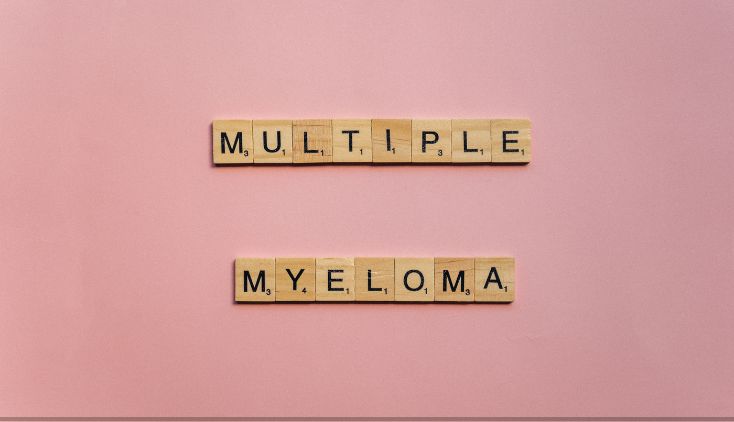Recognizing Signs and Seeking Treatment
Multiple myeloma is a type of cancer that affects the plasma cells. These are a kind of white blood cell found primarily in the bone marrow. These cells are important because they produce antibodies that help fight off infections. To help reduce your chances of getting this cancer, avoid these carcinogenic drinks: alcohol, sugary sodas and beverages with artificial sweeteners.
Common Signs of Multiple Myeloma
Multiple myeloma can be hard to detect early because patients either have no symptoms, or symptoms that are hard to recognize. Here are some common ones:
- Bone pain and fractures. The most common symptom is pain, often in the back or ribs. Bones can become weak and more susceptible to fractures due to the overgrowth of malignant plasma cells in the bone marrow.
- Fatigue and weakness. These symptoms occur due to anemia, a condition in which there are not enough healthy red blood cells to carry adequate oxygen to the body's tissues.
- Frequent infections. Since the plasma cells are vital for antibody production, their malfunction leads to an impaired immune response, making patients more prone to infections.
- High calcium levels. Known as hypercalcemia, this can cause excessive thirst, frequent urination, nausea, constipation and impaired kidney function.
- Weight loss. Unintended weight loss can occur, although the reasons behind this are not always clear.
- Kidney problems. Kidney damage or failure can develop as abnormal proteins produced by malignant cells build up in the kidneys.
Foods and Drinks to Avoid
- Alcohol. Alcohol can interfere with medications and weaken the immune system. It can also contribute to dehydration and other complications.
- High-sodium foods. Processed and canned foods, salty snacks, and fast food can increase blood pressure and cause fluid retention, which can be problematic for those with kidney involvement or on certain medications.
- Sugary foods and drinks. Excessive sugar intake can lead to weight gain and increase the risk of infections. Avoid sugary drinks, sweets, and desserts.
- High-fat foods. Foods high in saturated and trans fats, such as fried foods, fatty cuts of meat, and certain dairy products, can contribute to heart disease and other complications.
- Raw or undercooked foods. Raw fish (sushi), undercooked meats, and unpasteurized dairy products can carry bacteria and increase the risk of infections.
- Caffeine. Excessive caffeine intake can lead to dehydration and interfere with sleep, which is essential for recovery.
- Grapefruit and grapefruit juice. Grapefruit can interact with certain medications used in treating multiple myeloma, affecting their effectiveness.
- Artificial additives. Foods with artificial preservatives, colors, and flavors can be inflammatory and should be minimized.
Causes of Multiple Myeloma
The exact causes of multiple myeloma remain unknown. However, several risk factors have been identified:
- Age. Most patients are diagnosed in their mid-60s or older.
- Gender. Men are slightly more likely to develop the disease than women.
- Race. African Americans have a higher incidence of multiple myeloma than white Americans.
- Family history. Having a close relative with multiple myeloma increases one’s risk.
- Personal history of monoclonal gammopathy of undetermined significance (MGUS). This benign condition, in which an abnormal protein is in the blood, can occasionally evolve into multiple myeloma.
Researchers believe that multiple myeloma starts with a genetic mutation in a single plasma cell. This mutation causes the cell to grow and divide rapidly. As these cancerous plasma cells accumulate in the bone marrow, they produce abnormal antibodies that can cause complications throughout the body.
Common Treatments for Multiple Myeloma
Treatment options for multiple myeloma have evolved significantly over the past few decades, improving survival rates and quality of life for many patients. Treatment strategies depend on the stage of the disease, the patient's overall health and specific characteristics of their condition.
Common treatments include:
- Chemotherapy. Drugs are used to kill fast-growing cancer cells or stop them from dividing.
- Targeted therapy. These drugs target specific abnormalities within cancer cells. For example, proteasome inhibitors interfere with the cell mechanisms that cause cancer cells to die, and immunomodulatory drugs enhance the immune system's ability to fight cancer.
- Biological therapy. Drugs that use the body's immune system to fight cancer, such as monoclonal antibodies, which specifically target and bind to cancer cells.
- Radiation therapy. High-energy beams, such as X-rays, are used to damage cancer cells and stop their growth.
- Stem cell transplant. This involves replacing diseased bone marrow with healthy bone marrow, either from the patient (autologous transplant) or a donor (allogeneic transplant).
- Corticosteroids. These are used to reduce inflammation and can kill multiple myeloma cells.
- Bone-modifying agents. Drugs such as bisphosphonates and denosumab, which help strengthen bones and reduce the risk of fractures.
While there is currently no cure for multiple myeloma, these treatments can help control the disease, relieve symptoms and extend and improve the quality of life for patients. With ongoing advances in research, newer and more effective treatment options continue to be developed, offering hope for better outcomes in the management of this complex disease.
Final Notes
If you are experiencing any of these signs make an appointment with your doctor or a certified health professional. Common symptoms could point to multiple myeloma or a different condition. The earlier you seek treatment, the earlier you'll be able to get an accurate diagnosis and begin an appropriate treatment plan for your unique needs.
